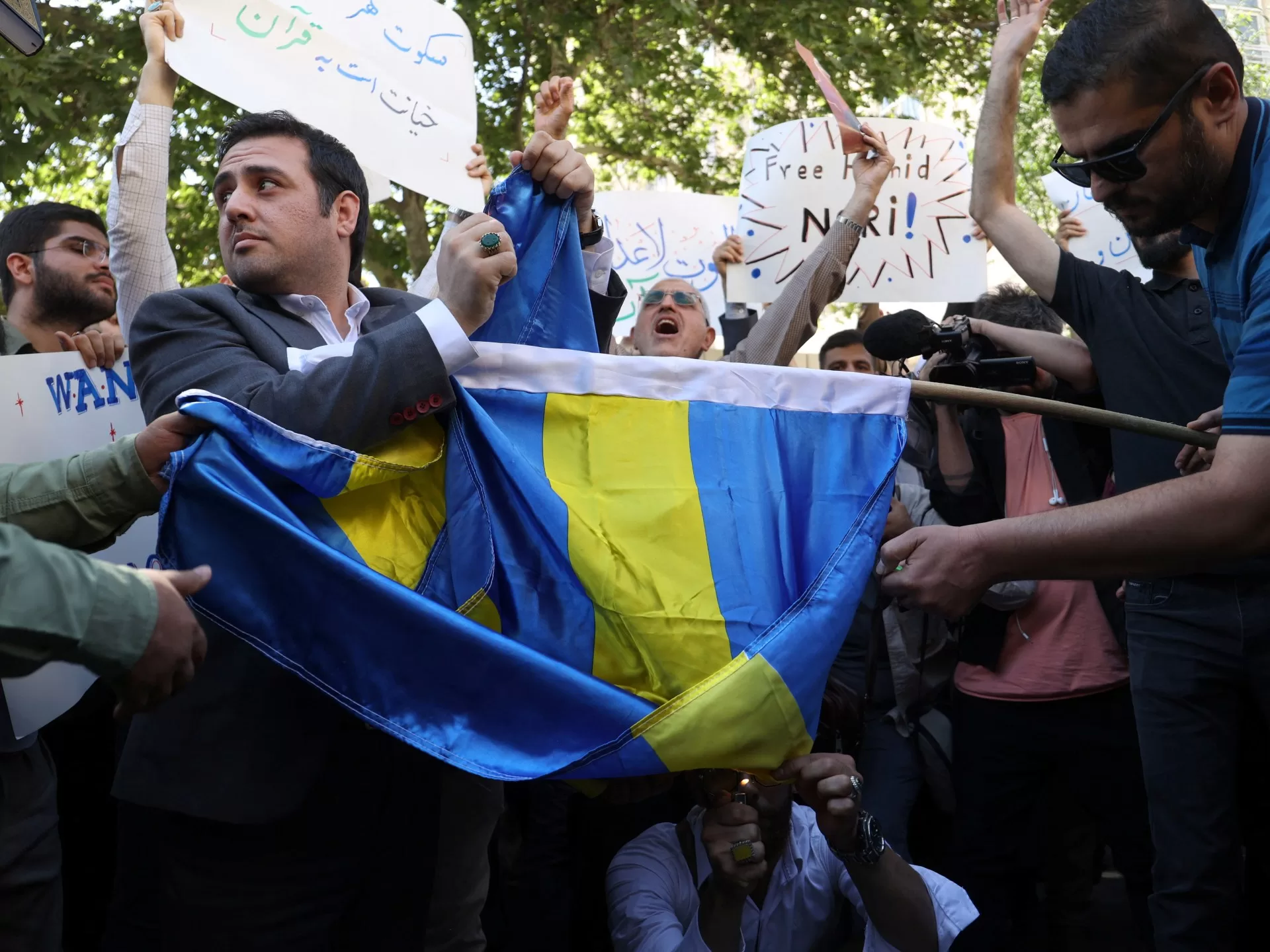Intelligence services say Iran sought to portray Sweden as ‘Islamophobic’ and divide society.
Sweden has accused Iran of sending thousands of text messages calling for revenge attacks over the burning of the Quran.
In a statement released on Tuesday, the Swedish Prosecution Authority said that Iran’s Islamic Revolutionary Guard Corps (IRGC) hacked into a local SMS operator last year and sent out about 15,000 text messages calling for retaliation after Islam’s holy book was burned during protests.
“[A] cyber group acted on behalf of the Iranian Revolutionary Guard to carry out an influence campaign,” the Swedish Security Service SAPO said in a statement.
“The purpose was, among other things, to paint the image of Sweden as an Islamophobic country and create division in society,” it said.
Swedish broadcaster SVT published a photo of a text message, saying that “those who desecrated the Quran must have their work covered in ashes” and calling Swedes “demons”.
Iranian authorities had made no comment on the accusations at the time of writing.
Deep discussion
The text messages were sent out by a group calling itself the Anzu team in August 2023, following a series of protests that featured attacks on the Quran.
The protests, approved by police, were held under the freedom of speech act, which is protected under the Swedish constitution.
As is standard in Western countries, Sweden has no blasphemy laws and there is no law specifically banning the burning or desecration of the Quran or other religious texts.
However, as is common in Europe regarding such incidents, a deep discussion emerged in Sweden concerning the balance between commitment to free speech and respect for religious minorities.
Sweden raised its terrorism alert following the Quran burnings.
In the statement issued on Tuesday, SAPO’s operational manager Fredrik Hallstrom accused “foreign powers” of seeking to “exploit vulnerabilities” and said they were “now acting more and more aggressively, and this is a development that is likely to escalate.”
He did not name any specific country.
Investigation closed
While Sweden’s prosecutors said they have identified the “Iranian hackers” responsible for the text campaign, they closed the investigation given it is unlikely they could be brought to justice.
“Since the actors are acting for a foreign power, in this case Iran, we make the assessment that the conditions for prosecution abroad or extradition to Sweden are lacking for the persons suspected of being behind the breach,” senior prosecutor Mats Ljungqvist said.
However, that “does not mean that the suspected hackers have been completely written off” and the probe could be reopened, he added.
Sweden’s intelligence service in May accused Iran of using established criminal networks in Sweden as a proxy to target Israeli or Jewish interests.
